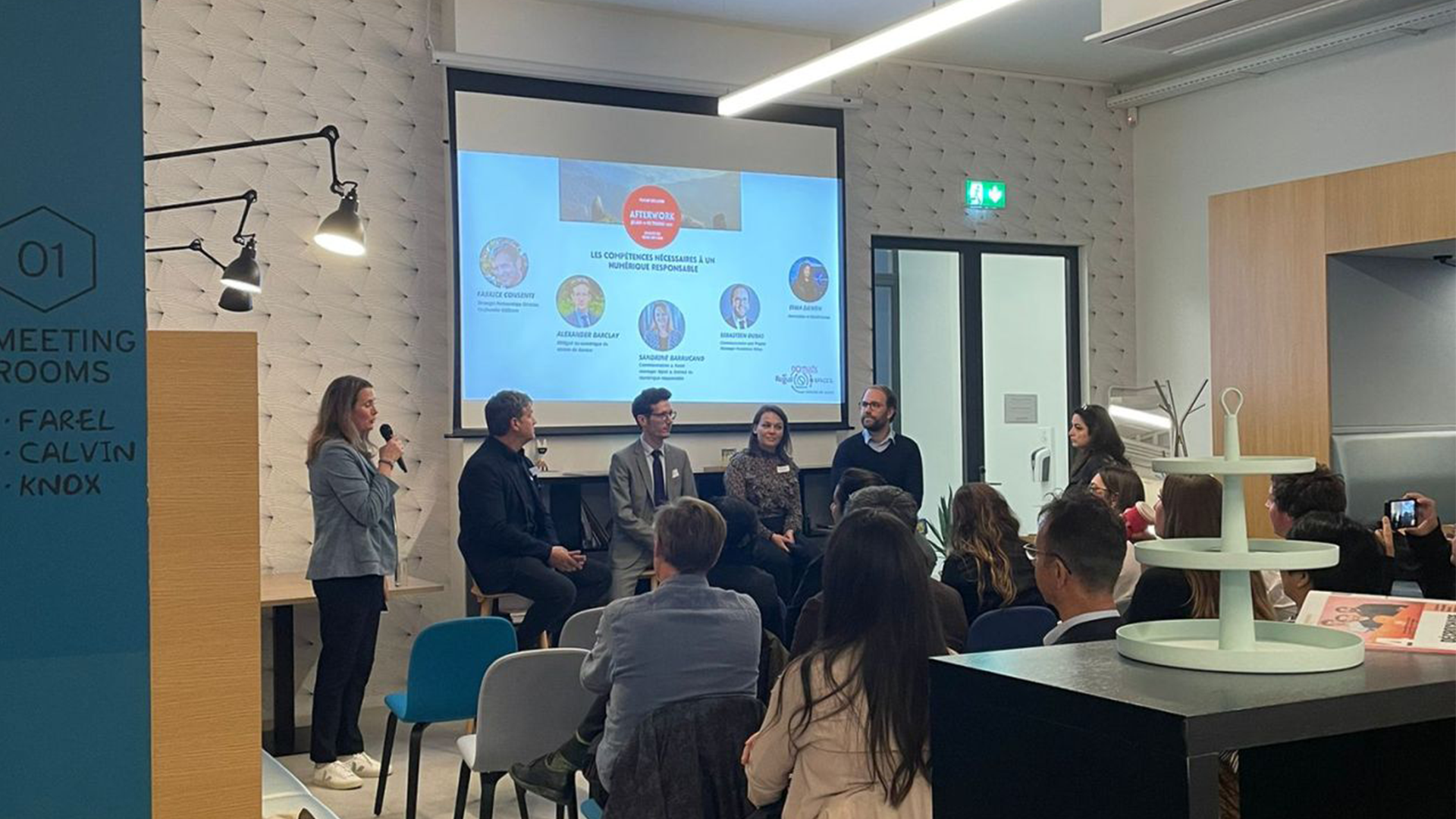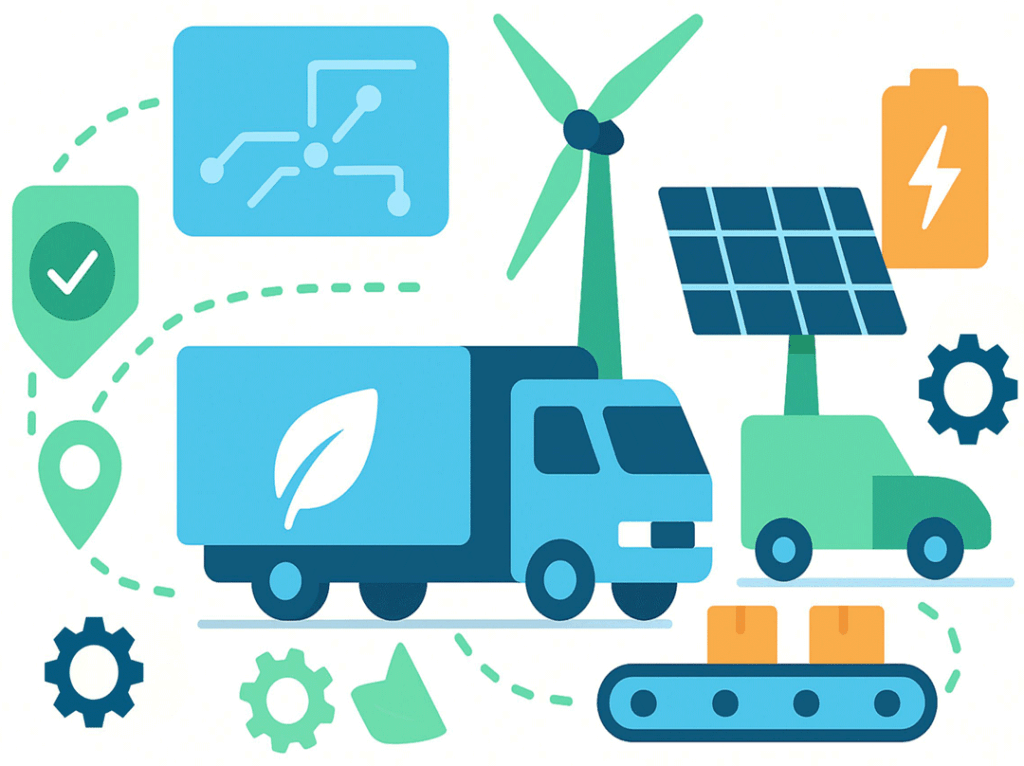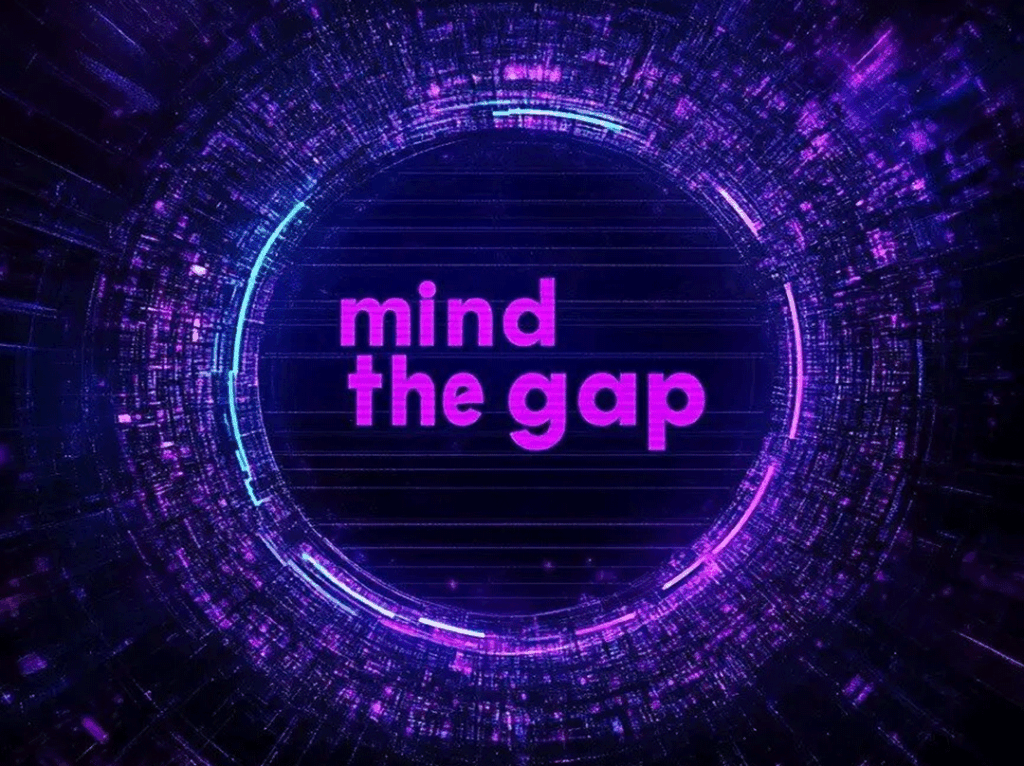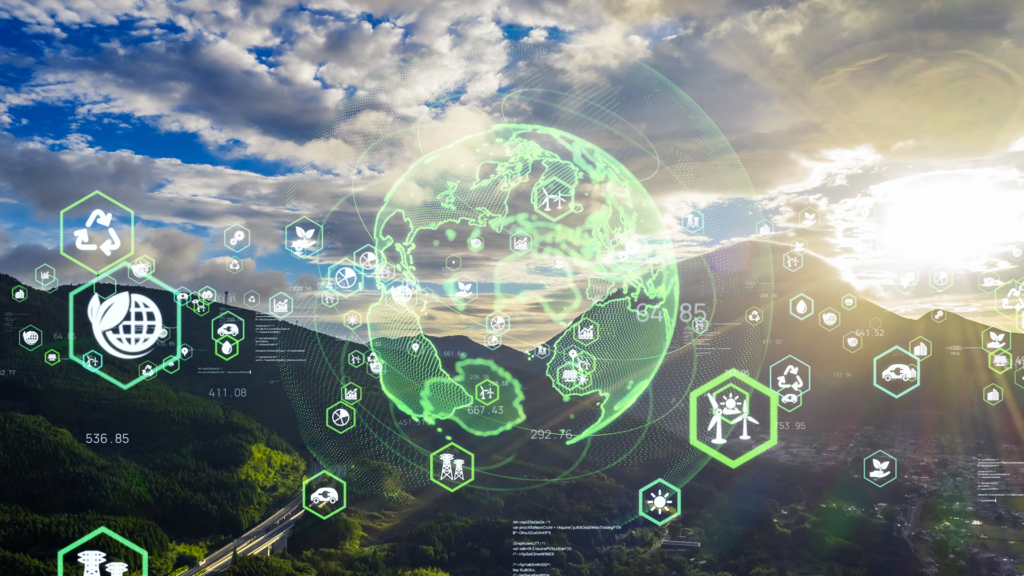Round table report: The skills needed for a responsible digital future
On Thursday, October 13, 2022, the Nomads Foundation, in partnership with IWG Suisse (Signature, Regus, Spaces), hosted an afterwork event entitled "Future of jobs" at Spaces on Quai de l'Ile in Geneva. The round table, moderated by journalist Irma Danon, brought together Fabrice Consenti, co-founder and director of Edificom, Sandrine Barrucand, head of communications and events at Alp ICT and the Institut du numérique responsable Suisse, Alexander Barclay, digital delegate for the Canton of Geneva, and Sébastien Dubas, Communication and Project Manager at the Ethos Foundation. The four speakers shared their knowledge on how to contribute to responsible digital use.
Today, digital technology is ubiquitous. Almost everyone uses it and is familiar with it. Few, however, are aware of the considerable pollution it generates. And even fewer are making an effort to reduce their digital impact on the environment. According to Sandrine Barrucand, this can be achieved in two ways. Firstly, by using only what is necessary, and discarding what is superfluous. For example, we prefer low-resolution photos and videos, avoid sending e-mails with copies to everyone if it's not essential, or attaching large numbers of high-resolution files. And we don't leave devices we don't use on or in standby mode. Secondly, we don't renew our computers, tablets and smartphones every time a new model comes on the market. On the contrary, we try to prolong their life as much as possible and encourage recycling. Because, as this specialist in digital responsibility puts it: "The computer that doesn't pollute is the one we don't make". The production of a desktop computer requires 370 liters of oil and 2800 kilos of raw materials, most of which are non-renewable.
While good usage practices may seem obvious to those in the know, they are ignored by a large proportion of users. Especially the very young, who are born with screens and spend long hours on them every day, mainly on power-hungry applications such as online games and streaming. That's why, according to Fabrice Consenti, we need to raise awareness among users from their earliest years, to inculcate in them less energy-hungry habits, in particular by avoiding constant power consumption, just as you wouldn't leave a tap running 24 hours a day.
But young people aren't the only ones concerned. Businesses are too. For example, they should use local servers to back up their data. That said, things are gradually changing: more and more companies are setting up carbon accounting systems to assess and improve their consumption. Sandrine Barrucand cites theWeNR tool. This free program, which can be downloaded from the Internet, quantifies the environmental footprint of a company's or institution's information system and measures its level of responsible digital maturity.
In the public sector, a real awareness is emerging. Alexander Barclay, for whom the State has a duty to set an example, explains that the Canton of Geneva has defined a digital policy to set out a political vision for the Canton in the digital age and ensure the coherence of its actions. A bill was passed by the Grand Council in September to enshrine the right to digital integrity in the cantonal constitution. It should be submitted to the electorate next year. In addition, the Canton has embarked on a process of digital sobriety, notably by extending the lifespan of its IT equipment, reducing the number of printers and tailoring its purchasing policy more closely to its needs. It is also taking steps to raise awareness of digital pollution among businesses and the general public. A training program is offered free of charge to companies to help them adopt the right tools and practices in terms of digital responsibility. In the near future, a self-assessment software program will be made available to them to measure their degree of maturity in terms of digital responsibility, and enable them to benefit from strategic advice and exchanges of best practices.
The social dimension is also taken into account by the Canton: a digital divide must not be created, sidelining entire sections of society. Alexander Barclay points out that this divide doesn't just threaten those who don't have access to IT tools such as a smartphone or computer. It also concerns those who use them poorly: he cites the example of young people who are very comfortable posting videos on social networks, but have difficulty finding a company on the web when looking for an apprenticeship. Last but not least, the people concerned must have access to support to help them make up for any shortcomings or delays. With this in mind, the cantonal employment office has set up a space where people can learn how to use IT tools, create an e-mail address and surf the Internet, to make it easier for them to find a job.
What about the private sector? Sébastien Dubas reports that last year, the Ethos Foundation wanted to take stock of digital responsibility within the country's major companies. Using a questionnaire, Ethos questioned the forty-eight largest listed companies in Switzerland. The results showed that these companies still have little awareness of the issue, and little interest in it: only twelve responded. The survey was repeated this year, and eighteen questionnaires were returned. For Sébastien Dubas, this proves that awareness of the issue is still in its infancy, even if he sees a slow improvement. He also notes the difficulty of finding key contacts within companies, as responsibilities seem to be scattered across several departments, which shows that the subject is not yet a field in its own right and is too often underestimated.
In conclusion, it appears that while good practices for responsible digital business have been making progress in recent years, they are still far from having reached a satisfactory level. The public sector is making more and more efforts in this area, but these are still too rare in the private sector, except for a few companies that are very involved in ecology and concerned about their carbon footprint. As for private individuals, especially the younger ones, it's hard for them to resist the offer of increasingly high-performance, power-hungry devices and the temptation to stay connected all the time. A great deal of work remains to be done to make them aware of their individual responsibility to use their IT tools responsibly.







